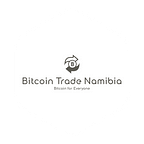What is Bitcoin?
Namibia has seen a growing interest in Bitcoin, the world’s first working digital currency.
Bitcoin is a new form of digital money created just after the 2008 global financial recession.
Anyone, anywhere in the world who has internet access and a smartphone is able to send and receive it.
Bitcoin has several advantages over the current (fiat) money system in use today:
- Bitcoin is based on cryptography which is a special branch of mathematics used to secure and encrypt data, Bitcoin cannot be counterfeited.
- Bitcoin is ‘decentralised’ which means that no individual person, company, country or entity can control it. There is no middle man to stop a transaction between its users and no way to freeze anyone’s funds. No bank or government can enforce their policies on it because bitcoin is held directly by its owners on their smartphones or computing devices.
- Bitcoin is transparent because all of its transactions are recorded in a public ledger called the ‘blockchain’ (or timechain). Entries into this ledger are verified by people all around the world through a process called ‘mining’. Every entry into the blockchain must pass stringent cryptographic verification to be considered valid. People referred to as ‘miners’ validate each entry using Bitcoin mining software and they are rewarded with Bitcoin for their effort. This is how new Bitcoin is created.
- Bitcoin is stored on your smartphone or computing device (or even a piece of paper) using an application called a bitcoin wallet. These are freely available through Google’s and Apple app stores. Unlike banks you don’t need an ID, salary slip or any type of personal documentation to participate in Bitcoin, as long as you have a bitcoin wallet, you can send and receive bitcoin. Wallets (such as Samourai and Blockstream Green) are easy to use and have great security features.
- A government issues their money through its central bank and when a government experiences economic hardship, they tend to print more of that money. This diminishes the value of the already printed money in circulation in their economy and also the value of the assets saved in that particular government’s money. In contrast to this, there will only ever be 21 million Bitcoins created. This means Bitcoin is scarce so its value is better preserved. Bitcoin’s value against all other financial assets in the world has steadily risen since it started operating on 03 January 2009.
- 1 Bitcoin consists of 100,000,000 units called a ‘Satoshi’. Bitcoin is highly divisible, making it suitable to move very large (In excess of 1 Billion USD has been moved in a single transaction) or very small amounts of value (one can purchase 5 NAD of airtime with Bitcoin) on the same network.
- Bitcoin has a working governance model, with the exception that it has no traditional hierarchy. Every single person or entity using it has a stake in how it operates. This makes it a very complex system but means it is ‘anti-fragile’ as it can withstand many types of negative events such as:
- Changes in its source code (Getting millions of people to agree on even the smallest change without a leadership structure is very complex and difficult)
- Financial meltdown (Bitcoin has lost more than 50% of its value over 4 times since 2009 but has recovered quickly each time and continues its growth as an a new type of financial asset)
- Political upheaval (i.e. in Venezuela or Zimbabwe where it is seeing growing adoption despite the collapse of their financial systems).
Bitcoin has operated with less than five hours of downtime to this very day, meaning its uptime is more than 99% which cannot be said of any other financial network ever to exist.
In 2018 Bitcoin moved in excess of 3.5 trillion USD in value. It now has a total trading volume which has surpassed that of the metal gold and a total market size that exceeds the assets of the American bank JP Morgan.
Bitcoin could become the new global money — but this will not happen overnight. Its popularity has steadily grown as young and old alike look toward an asset that cannot be debased by governments and can be easily accessed via digital means.
However, as with any new asset class, that road will be filled with obstacles. Bitcoin can be volatile and risky. If it is used for speculation purposes (such as forex trading or investment schemes), serious losses can be incurred.
Although Bitcoin is not yet directly accepted by the big online retailers such as Amazon, Apple and eBay (although you can purchase gift cards to use these services with Bitcoin), adoption is steadily growing and it can already be used through various services such as BitRefill, Expedia, Overstock or Microsoft — where one can buy a variety of products ranging from flights and video games to mobile airtime top ups in over 90 countries.
The use of Bitcoin as a technology, form of payment or savings vehicle in Namibia is still small but we have observed a steady growth in all three aspects.
At Bitcoin Trade Namibia we believe Bitcoin is the future of money and that is why we strive to help bring the Namibian investor, developer or general interested public into this game changing new technology.
Buy and Sell Bitcoin in Namibia at https://bitcoin-namibia.trade
[This is an article repost from https://bitcoin-namibia.trade/2018/12/20/what-is-bitcoin/ ]
